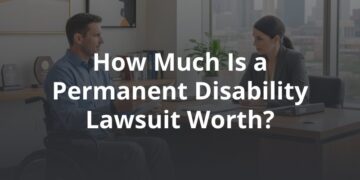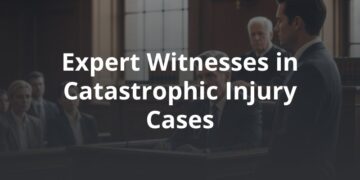Any automobile accident is frightening, interruptive, and potentially life-altering. But what if it wasn’t an accident at all? Unfortunately, staged auto accidents are real — and can cause you thousands of dollars in increased insurance premiums.
Perpetrators of these scams purposefully cause auto accidents, maneuvering their vehicles so that you’ll hit them. That way, they can claim that the incident was your fault and try to defraud your insurance company for false or exaggerated injuries.
Insurance scams like these raise average insurance premiums for insured drivers (it’s estimated that auto insurance fraud adds between $200 to $300 to the average driver’s yearly insurance expenses). But they can also have devastating consequences for the individuals involved. Obviously, it’s incredibly dangerous to purposefully cause an accident — a staged collision can easily turn very serious. Additionally, even “minor” accidents can result in major injuries, particularly spinal issues.
Here’s what you need to know about auto insurance scams — and how you can protect yourself from fraudsters.
Common Techniques Used in Auto Accident Scams
If you have recently experienced a car accident or truck accident and something feels off about the other driver, you may be the victim of an auto accident scam. There are several techniques scammers use to instigate accidents, so if the circumstances below sound familiar, you may need to take additional action.
- Staged Rear-Ending. This scam, also known as a “swoop and squat,” occurs when a driver unexpectedly swerves in front of another driver and then brakes suddenly. This causes the car behind them to rear end their car, so they can claim that the accident was not their fault and that they have been seriously injured.
- The “Drive Down.” In this scam, a driver will wave you into their lane in front of them as you attempt to merge. Once you begin maneuvering into the lane, they purposefully hit you, then later claim that they had never signalled to you. Without a witness, your insurance company may say it’s your word against them, and then charge you for phantom injuries in increased premiums.
- Sideswiping. This type of scam occurs when you’re turning left in the inner lane of a dual turn lane. The scammer takes the turn in the outer lane, waits for you to drift slightly into right and then sideswipes you, claiming it is your fault.
- False Helpers. This scammer doesn’t intentionally cause an accident. Instead, they take advantage of an accident as it occurs, often learning about your accident through tips from crooked tow truck drivers. They then approach you — either in person or over the phone — and recommend that you bring your car to a particular body shop or get treated at a certain clinic. They may even give you the name of a lawyer to call. However, they’re not really trying to be helpful. Instead, they’re trying to get access to your information so they can file false claims under your name.
While these auto accident scammers may think they’ve simply found an easy way to make money off the insurance industry, they are behaving extremely recklessly and could cause serious injury or even death. Therefore, it’s important that you hold these drivers accountable.
How You Can Protect Yourself from Auto Accident Scams
Although accidents are often unavoidable, there are several actions you can take to keep yourself protected.
- Keep a safe distance between your vehicle and the car in front of you at all times.
- Be sure to get the license plate and license information of the other driver involved in the accident.
- Call the police to the scene of any accident, even if it seems minor.
- Look around for any witnesses who may have seen what happened, as their statements may be pivotal to proving that the other driver purposefully hit you. Take down their name and contact information.
- Never give away information about your accident to anyone over the phone — even your insurance company — until you have discussed your case with a lawyer.
- Always see a medical professional as soon as possible to ensure that you haven’t been seriously injured — even if you feel fine at first.
- Always research any body shop, mechanic, doctor’s office or lawyer you use before you give them your information. In particular, look at their reviews on Google, Yelp, and the Better Business Bureau.
- If you feel you may be the victim of an insurance scam, contact the National Insurance Crime Bureau (NICB) toll-free at 1-800-TEL-NICB (1-800-835-6422).
- Arrange a free consultation with a personal injury lawyer.
If you have been involved in an accident — any accident — contact our Austin personal injury lawyers at FVF to set up a free case evaluation. In your consultation, we’ll help you understand your rights and options, and advise you whether or not you may have been the victim of insurance fraud. Get in touch today to get started.








